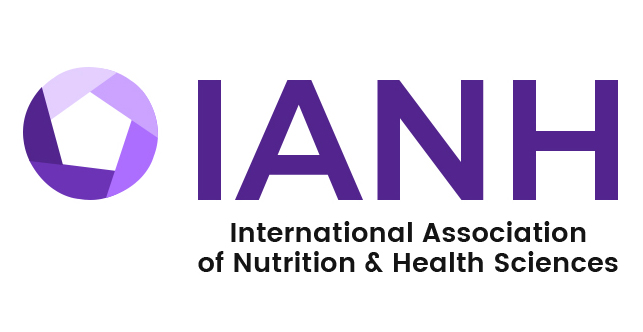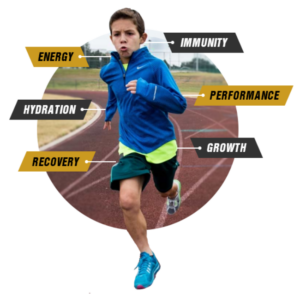- Display 9 Products per page
Why CPD?
In most professions, practitioners must spend a certain amount of time every year brushing up their skills and learning about new developments in their sector. It’s just as important that Nutrition practitioners keep their knowledge current through Continuing Professional Development.
As a professional body, one of the IANH roles is to promote high standards of professional practice amongst its members.
CPD Courses:
- Diet Planning
- Sports Nutrition
- Young Athlete Nutrition
- Weight Management
- Diabetes Nutrition
- Endocrine Nutrition
Course Features:
You will earn 4 CPD points on completion of the course, this course will take around 6 hours to complete and the certificate will last for two years.
- Fully CPD registered
- Completed online with instant downloadable certificate
- Complete the online multiple choice assessment as many times as you need to pass
- Diet Planning
Syllabus:
- Understand the nutritional requirements of different groups and identify healthy dietary patterns for specialized diets.
- Apply evidenced-based nutrition principles to develop individualized meal plans.
- Develop appropriate menus and recipes for special dietary needs.
- Develop nutritional education handouts
- Incorporate cultural and religious dietary practices into meal plans.
- Monitor diet adherence, assess progress, and modify plans as needed.
- Use technology-based tools to plan and evaluate meal plans.
Suitable for healthcare providers and nutrition professionals.
Sport Nutrition
- Learning Objectives
- Understand the impact of nutrition on physical performance.
- Demonstrate knowledge of current dietary guidelines, sports nutrition principles, and food safety.
- Develop individualized nutrition plans for athletes and active individuals.
- Educate clients on healthy eating habits and proper nutrition for their sport or activity.
- Analyze sport performance and suggest appropriate dietary modifications.
- Monitor and assess clients’ progress regarding nutrition and performance goals.
- Provide guidance on the appropriate use of dietary supplements.
- Implement hydration strategies to support performance.
- Identify the impact of body composition on physical performance.
- Develop strategies to modify body composition.
Suitable for Nutrition Professionals (RDN), Advanced Licensed Healthcare Providers (MD/DO, DC, ND, NP, PA, APRN, and Pharmacists).
Young Athlete Nutrition
- Learning Objectives
- Understand the basics of nutrition for young athletes, including the macronutrients, micronutrients, and the importance of balanced meals.
- Develop an understanding of the unique dietary needs of young athletes based on their age, activity level, and individual needs.
- Develop a knowledge of the impact of nutrition on athletic performance.
- Learn appropriate strategies for educating young athletes on nutrition and incorporating healthy eating habits into their lifestyle.
- Learn how to assess a young athlete’s diet and develop individualized nutrition plans.
- Become familiar with the role of dietary supplements and ergogenic aids in young athlete nutrition.
- Learn how to identify and address nutrition-related health problems in young athletes.
- Identify and analyze current trends and research related to young athletes’ nutrition.
Weight Management
- Learning Objectives
- Develop an understanding of basic nutrition principles and how they impact overall health.
- Learn the fundamentals of weight management, including understanding the role of physical activity and lifestyle changes.
- Develop an understanding of body composition, body mass index (BMI), and the health implications of being overweight and obese.
- Understand the different types of diets used for weight management and the pros and cons of each.
- Learn how to assess and evaluate a client’s current diet and physical activity levels.
- Develop counseling and communication skills to effectively communicate with clients about their weight management plan.
- Learn the safety considerations of weight management programs and how to provide proper guidance.
- Develop an understanding of the psychology of weight management and how to motivate clients to reach their goals.
- Learn how to create and implement individualized weight management plans for clients.
- Develop an understanding of the various weight loss medications and supplements available and their potential risks and benefits Identify and analyze current trends and research related to young athlete nutrition.
Diabetes Nutrition
- Learning Objectives
- Understand the basics of diabetes nutrition, including carbohydrates, fats, proteins, and fiber.
- Identify the nutritional needs of individuals with diabetes.
- Develop a personalized meal plan for individuals with diabetes.
- Understand the effects of physical activity on diabetes management.
- Learn about the importance of monitoring blood glucose levels.
- Understand the importance of diabetes self-management education.
- Identify strategies to help individuals with diabetes achieve their nutrition goals.
- Develop strategies to promote healthy eating habits for individuals with diabetes.
- Understand the role of medication in diabetes management.
- Identify resources for individuals with diabetes.
Food Labels Unwrapped
Probiotic and Prebiotic Foods: Nutrition and Gut Health
Natural and Herbal Strategies for Menopause
The Science behind detox diets
Functional Nutrition Approach to Immunity
Assessments for Sport and Athletic Performance
PEDIATRIC NUTRITION
PCOS Nutrition – A Practical Approach
Pregnancy Nutrition – A Practical Approach
Clinical Skills & Strategies in Weight Management
Nutrition for Cancer Pations
Immunity Nutrition Guide
Food and Mood
Basics of Keto Diet
Diet Planning
Learning Objectives
- Understand the nutritional requirements of different groups and identify healthy dietary patterns for specialized diets.
- Apply evidenced-based nutrition principles to develop individualized meal plans.
- Develop appropriate menus and recipes for special dietary needs.
- Develop nutritional education handouts
- Incorporate cultural and religious dietary practices into meal plans.
- Monitor diet adherence, assess progress, and modify plans as needed.
- Use technology-based tools to plan and evaluate meal plans
- Suitable for healthcare providers and nutrition professionals
Health and Wellness Coach
Learning Objectives
IANH require certified to apply for certificate renewal and complete 20 continuing education development credits every one year. This process is an opportunity for certificate-holders to demonstrate their ongoing efforts to maintain their competence and skills and assures the public that practicing certified are committed to adhering to a code of ethics and standard of practice of IANH

About Us
Get In Touch
110 BISHOPSGATE, LONDON, EC2N 4AY, UNITED KINGDOM









